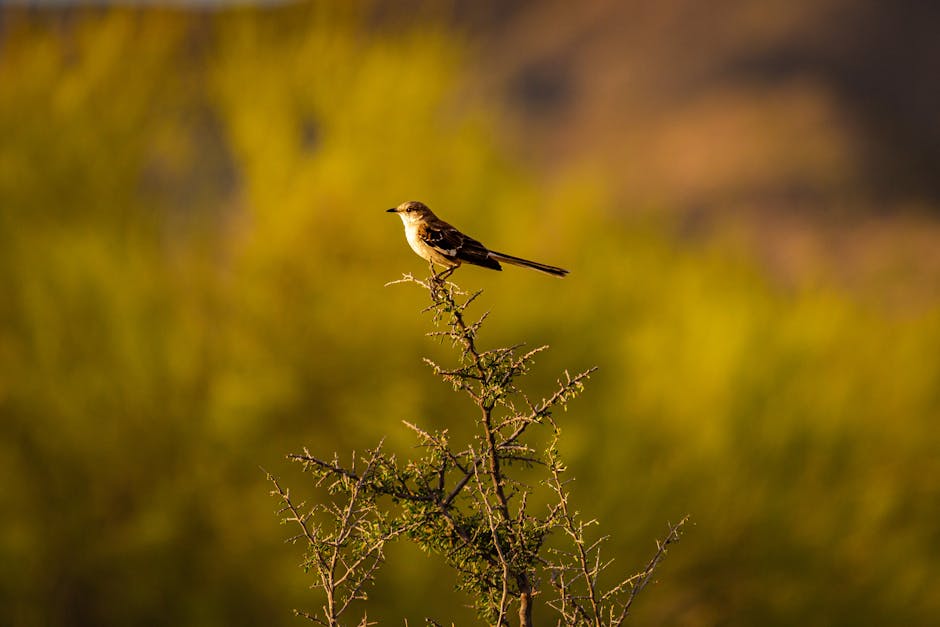Have you ever wondered which bird represents the spirit of Arizona? Knowing the Arizona state bird is more than just a fun fact—it connects you to the unique beauty and culture of this amazing state.
You’ll discover the fascinating story behind Arizona’s official bird and why it holds a special place in the hearts of its people. Keep reading, and you’ll see how this bird symbolizes the essence of Arizona in ways you might never have imagined.
Arizona’s State Bird
The Cactus Wrenis Arizona’s official state bird. It is known for its loud, clear songand distinctive spotted feathers. This bird lives in desert areasand builds nests in cactus plants, especially the saguaro cactus.
The Cactus Wren is medium-sized, about 7 to 8 inches long. It has a white stripe over its eyeand a brownish bodywith white spots. It feeds on insects, spiders, and fruits.
| Feature | Description |
|---|---|
| Scientific Name | Campylorhynchus brunneicapillus |
| Habitat | Desert, cactus areas |
| Size | 7-8 inches long |
| Diet | Insects, spiders, fruits |
| Special Trait | Nests inside cactus plants |
Physical Features
The Arizona state bird is the Cactus Wren. It has a medium size, about 7 inches long. Its body coloris brown with white spots. This helps it blend with desert plants.
The bird has a long, curved beakperfect for catching insects. Its white eyebrow stripestands out on its face. The legs are strong for hopping on rocky ground.
The Cactus Wren’s tail is long and barred. It uses the tail for balance while moving quickly. The feathers are rough and stiff, good for harsh desert weather.
Habitat And Range
The Arizona state bird, the Cactus Wren, lives mostly in desert areas. It prefers places with many cacti and bushes. These birds are found all over Arizona and some parts of nearby states.
Cactus Wrens build nests in cactus plants. They use thorny cacti to keep safe from predators. They also like dry, open spaces with lots of sunlight.
- Found mainly in deserts and dry scrublands
- Nests built inside cacti like the saguaro
- Common in Arizona and parts of California, Nevada, and Utah
- Active in warm and sunny weather
Behavior And Diet
The Arizona state bird, the cactus wren, is known for its unique behavior. It is often seen hopping around the desert. This bird is very social and loves to sing. Its song is loud and cheerful.
The cactus wren’s dietmainly consists of insects. It eats ants, beetles, and grasshoppers. Sometimes, it also eats small fruits and seeds. This helps the bird stay healthy and strong.
The cactus wren builds its nest in cacti. This protects it from predators. The bird is very clever and resourceful. It uses twigs and leaves to make its nest cozy.
Cultural Significance
The Arizona state bird, the Cactus Wren, holds great cultural importance. It symbolizes the resilienceand beautyof the desert. People see it as a sign of lifein harsh places.
The bird’s lively song is often heard around homes and trails. It reminds people of nature’s harmonyand adaptation. The Cactus Wren also appears in local art and crafts, showing its place in Arizona’s heritage.
- Represents strength in tough environments
- Common in desert stories and legends
- Inspires many artists and writers
- Seen as a symbol of Arizona’s wild spirit

Credit: www.facebook.com
Conservation Status
The Arizona state bird is the Cactus Wren. It is not endangered. Its population is stable in most areas. The bird lives in deserts and dry places. It builds nests in cactus plants. Protecting its habitat helps keep it safe.
Some threats include habitat loss and climate change. People work to preserve desert areas. This helps many desert animals, including the Cactus Wren.
| Conservation Factor | Status |
|---|---|
| Population | Stable |
| Habitat | Desert areas, cactus plants |
| Threats | Habitat loss, climate change |
| Protection Efforts | Habitat preservation |
Fun Facts
The Arizona state bird is the Cactus Wren. It is a small bird known for its loud, clear song. The Cactus Wren lives in the desert and builds nests in cactus plants. This bird helps control insect populations by eating bugs. It is very active during the day and can be seen hopping on the ground or flying low. The Cactus Wren was made the state bird in 1931. It is a symbol of survival and toughness in the hot desert climate.
- Scientific name:Campylorhynchus brunneicapillus
- Habitat:Deserts of Arizona and nearby states
- Diet:Insects, spiders, and occasionally fruits
- Nesting:Builds large nests in cactus plants
- Size:About 7-8 inches long

Credit: www.facebook.com

Credit: www.facebook.com
Frequently Asked Questions
What Bird Is The Official State Bird Of Arizona?
The Cactus Wren is Arizona’s official state bird, known for its loud calls and cactus nests.
Why Was The Cactus Wren Chosen As Arizona’s State Bird?
It symbolizes Arizona’s desert life and adapts well to hot, dry environments.
Where Can You Commonly See The Arizona State Bird?
You can spot the Cactus Wren in desert areas, especially around cacti and shrubs.
Conclusion
The Arizona state bird, the Cactus Wren, is truly special. It shows the desert’s beauty and strength. People love its loud, cheerful song. This bird lives well in hot, dry places. It builds nests in cactus plants for safety. Knowing about the state bird helps us appreciate Arizona’s nature.
Next time you visit, listen for its unique call. The Cactus Wren is more than a symbol; it is a part of Arizona’s heart.
